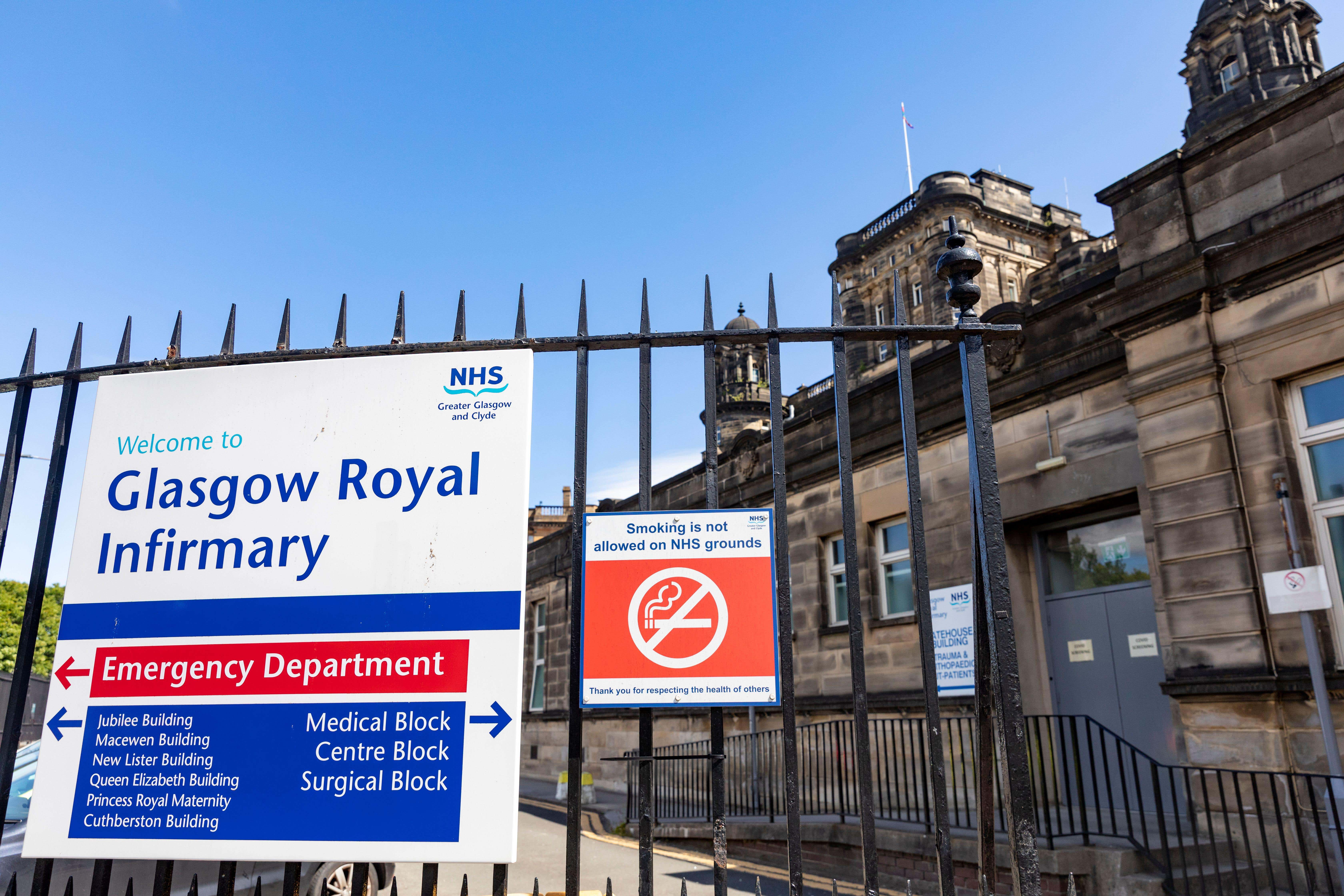Man who nearly died after catching flu helps at hospital which saved his life
Alan Curran, 54, spent nearly seven months in hospital after catching flu which developed into sepsis and pneumonia.

Your support helps us to tell the story
From reproductive rights to climate change to Big Tech, The Independent is on the ground when the story is developing. Whether it's investigating the financials of Elon Musk's pro-Trump PAC or producing our latest documentary, 'The A Word', which shines a light on the American women fighting for reproductive rights, we know how important it is to parse out the facts from the messaging.
At such a critical moment in US history, we need reporters on the ground. Your donation allows us to keep sending journalists to speak to both sides of the story.
The Independent is trusted by Americans across the entire political spectrum. And unlike many other quality news outlets, we choose not to lock Americans out of our reporting and analysis with paywalls. We believe quality journalism should be available to everyone, paid for by those who can afford it.
Your support makes all the difference.A man who nearly died from sepsis after catching flu from a colleague now volunteers at the hospital which saved his life.
Alan Curran, 54, who previously worked as a courier, stopped in to check on a sick colleague in November 2022.
A few days later, Mr Curran started coughing and feeling unwell – and woke up three months later in the intensive care unit at the Glasgow Royal Infirmary.
Mr Curran, from Glasgow’s east end, developed pneumonia and sepsis after catching flu which developed complications, and was put into an induced coma until February 2023.
He suffered several heart attacks, kidney failure and was in cardiac arrest for 28 minutes – and was in hospital for nearly seven months.
Mr Curran said: “I spent over 11 weeks in intensive care where I was in a critical condition and for the vast majority of that period, I was heavily sedated in an induced coma. My memory isn’t clear and most of the memories that I do have, are of severe delirium.
“I spent six-and-a-half months in total in hospital and cannot thank enough the support of all the nurses, doctors and staff who helped me.
“I wouldn’t be here today if it wasn’t for the unbelievable treatment and care that the staff provided for me, and I will be eternally grateful.”
He now volunteers at the Glasgow Royal Infirmary after having his spirits raised by people who visited to “break up the monotony”.
NHSGGC was crucial in saving my life and I wanted to give something back.
Mr Curran said: “There were volunteers that would come to the ward, and I wasn’t really engaging at first as I had family and friends visiting regularly.
“After a couple of visits, there was one particular woman who I really enjoyed her company and I used to look forward to her coming to visit, just to have a chat and a laugh. It helps to break up the monotony of a day and lifts your mood.
“From my own experiences as a patient, I was invited to become a volunteer after attending the Inspire programme at the intensive care unit at GRI in October.
“I get a great deal of satisfaction from it, both in the way that I can help people, and it gives me purpose and something to look forward to during the week.
“I was always someone in the past who thought about volunteering, but I would put good intentions on the shelf.
“NHSGGC (NHS Greater Glasgow and Clyde) was crucial in saving my life and I wanted to give something back. If I can do it, really anyone can.
“If you have even a small amount of spare time, there is a role you can fulfil, and I would encourage you to contact the volunteer service.”
For more information and how you can contact the volunteer service within NHSGGC, please visit Volunteering – NHSGGC.